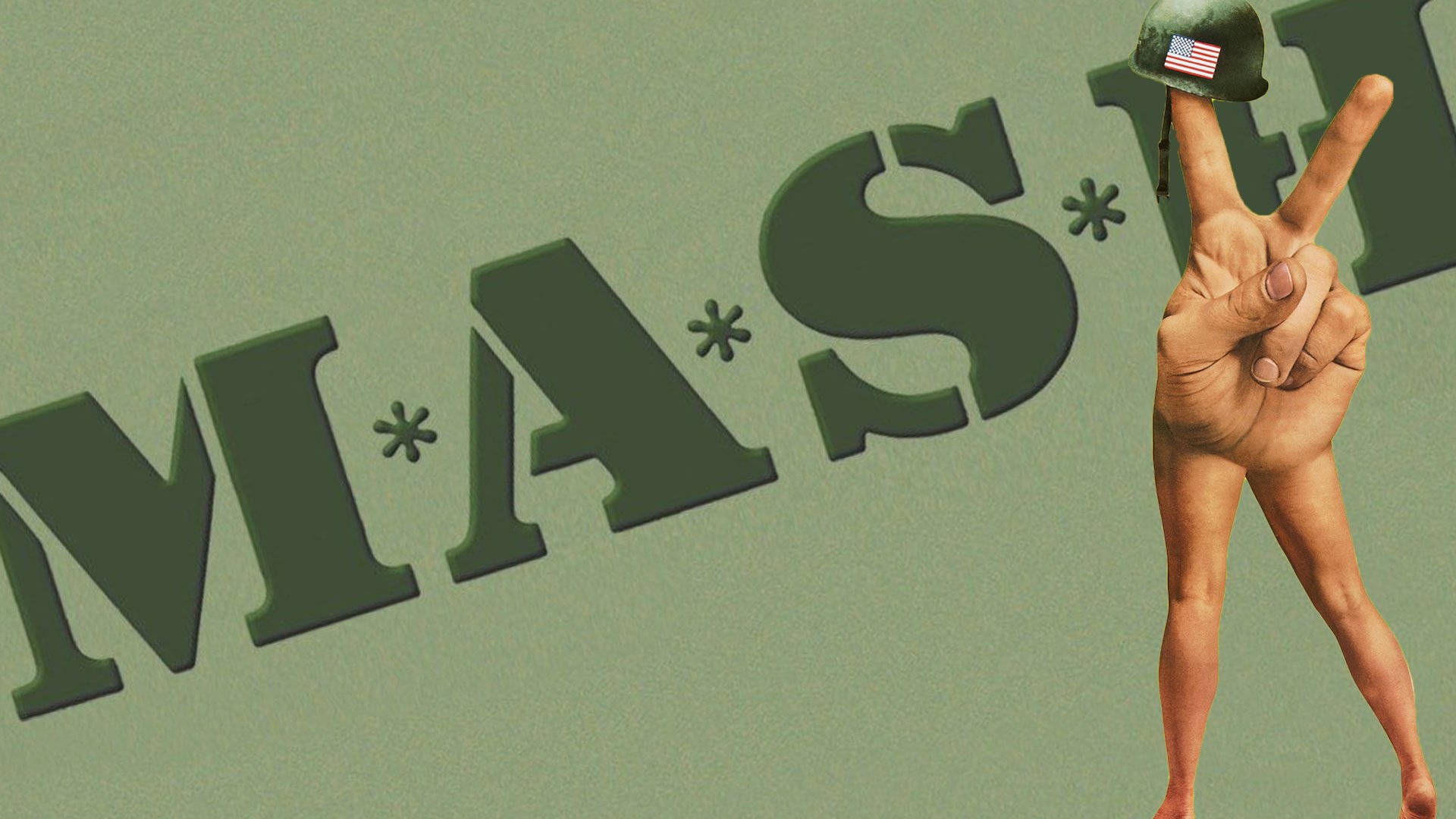3 Episodes of ‘M*A*S*H’ That Prove the Show Is Still Relevant 50 Years Later

M*A*S*H began its 11-season run over 50 years ago, but the Korean War comedy is still relevant today. Composite by Coffee or Die Magazine.
It’s been half a century since M*A*S*H first premiered on CBS, kicking off a wildly successful 11-season run that culminated in February 1983 with the most-watched series finale in American television history. Based on Richard Hooker’s novel of the same name, M*A*S*H was trailblazing in many respects, paving the way for future medical comedies and dramedies, such as Scrubs and House, as well as for shows like Barry and Atlanta, which carry on the tradition of using dark humor to tackle heavy topics. The final episode of M*A*S*H drew 125 million viewers — more than six times as many as the Game of Thrones finale garnered 30 years later. Of the top 30 most-watched television broadcasts in US history, the M*A*S*H finale is the only one on the list that wasn’t a Super Bowl.
M*A*S*H is centered around a team of US military medical personnel assigned to the 4077th Mobile Army Surgical Hospital during the Korean War. The show’s first few seasons leaned heavily on screwball comedy and featured a noisy laugh track that was gradually faded out and completely gone by the end of the series. As the series progressed, it delved more and more into serious subjects related to the Korean War and, less directly, to the Vietnam War, which was still being fought when the first season aired. With its blending of comedy and tragedy, and its overly anti-war message, M*A*S*H forever changed the way Americans think and talk about war and remains an important piece of television history. Although a show that regularly relied on things like cross-dressing for laughs can easily be dismissed as dated, M*A*S*H is, in many ways, just as relevant today as ever. These three episodes prove why.
‘Sometimes You Hear the Bullet’
The 17th episode of season one, "Sometimes You Hear the Bullet" broke new ground when it aired Jan. 28, 1973. The show’s creator took a chance by deviating from the lighthearted storylines fans were already getting used to and focused the episode on the death of a patient and its effects on the hospital’s typically jovial staff.
In the episode, Hawkeye (played by Alan Alda), performs surgery on his civilian friend, Tommy, who suffers a gunshot wound while reporting on the front lines. Tommy dies while undergoing surgery, causing Hawkeye to break down in tears for the first time since the series started.
“I’ve watched guys die almost every day, why didn’t I ever cry for them?” Hawkeye asks Henry Blake (played by McLean Stevenson). Henry tells Hawkeye that there are certain rules about war and the first is that young men die. The second is that doctors can’t change rule No. 1.
It’s a sobering scene, one that reminds audiences that despite the humor, the show is ultimately about a war that cost more than 36,000 American lives. "Sometimes You Hear the Bullet" marked a clear turning point in the series — particularly in regard to the show’s overall tone — and let audiences know that M*A*S*H wasn’t just shooting for laughs.
‘Abyssinia, Henry’
In the final episode of season three, Henry Blake, the beloved commander of the 4077th Mobile Army Surgical Hospital, is told he’s met all the required criteria to be honorably discharged and sent back home to his wife and family. The majority of the episode follows Henry as he prepares to depart Korea. Then, in the final scene, the rest of the hospital staff learns that Henry’s plane was shot down over the Sea of Japan, killing everyone on board. The tragic ending, which highlights the indiscriminate nature of war, stunned audiences.
When the episode aired in 1975, Henry’s death caused such a shock that the show’s producers received over 1,000 letters from fans condemning it as a cheap gimmick. Years later, the show’s creator, Larry Gelbart, explained his rationale for bringing Henry’s story to such a dramatic conclusion.
“Gene [Reynolds] and I thought we should use the departure of the character in some meaningful fashion. 'M*A*S*H' was not about everyone having a good time. 'M*A*S*H' was not about happy endings. We decided his character could, not should, could die.”
‘Goodbye, Farewell, and Amen’
"Goodbye, Farewell, and Amen" was the 256th, and last, episode of the series. It took a whopping two and a half hours to close out all of the show’s storylines. One of the best scenes — not just of the episode but of the entire series — finds Hawkeye wrestling with a memory he had long repressed. Early in the episode it is revealed that Hawkeye suffered a mental breakdown while performing surgery and is now receiving treatment at a psych ward. Speaking to a doctor, Hawkeye recounts a time when he was escorting a bus of Korean refugees and had to hide from an enemy patrol. He explains that, as the patrol passed, one of the passengers' chickens was making too much noise and Hawkeye urged her to silence it. But while he is explaining this to the doctor, he realizes that the chicken was actually a baby and that the mother smothered it to death to avoid alerting the enemy soldiers.
It’s a gut-wrenching story, one that leaves no room for mistaking what M*A*S*H is really about: war’s terrible cost. For all of its jokes, the show never shied away from the truth, and for that reason it still merits our attention.
Read Next: 5 Things You Probably Didn’t Know: ‘Fury’

Mac Caltrider is a senior staff writer for Coffee or Die Magazine. He served in the US Marine Corps and is a former police officer. Caltrider earned his bachelor’s degree in history and now reads anything he can get his hands on. He is also the creator of Pipes & Pages, a site intended to increase readership among enlisted troops. Caltrider spends most of his time reading, writing, and waging a one-man war against premature hair loss.
BRCC and Bad Moon Print Press team up for an exclusive, limited-edition T-shirt design!
BRCC partners with Team Room Design for an exclusive T-shirt release!
Thirty Seconds Out has partnered with BRCC for an exclusive shirt design invoking the God of Winter.
Lucas O'Hara of Grizzly Forge has teamed up with BRCC for a badass, exclusive Shirt Club T-shirt design featuring his most popular knife and tiomahawk.
Coffee or Die sits down with one of the graphic designers behind Black Rifle Coffee's signature look and vibe.
Biden will award the Medal of Honor to a Vietnam War Army helicopter pilot who risked his life to save a reconnaissance team from almost certain death.
Ever wonder how much Jack Mandaville would f*ck sh*t up if he went back in time? The American Revolution didn't even see him coming.
A nearly 200-year-old West Point time capsule that at first appeared to yield little more than dust contains hidden treasure, the US Military Academy said.












